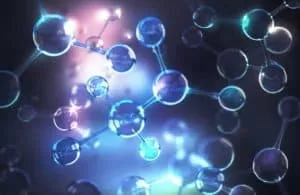What is Enzymatic Therapy?
Using natural systemic enzymes to destroy cancer cells and decrease tumors in patients is called “enzymatic cancer treatment and therapy.”
Enzyme replacement therapy is a medical procedure that restores an enzyme in the body that is inadequate or missing. The patient is usually given an intravenous (IV) infusion of an enzyme solution.
Enzyme Therapy Research
While research on enzyme treatment is still ongoing, preliminary findings suggest that enzymes may have an impact on cancer growth. For example, PEG-KYNase enzyme may help the immune system attack cancer cells and slow their proliferation.
Other research suggests that some enzymes (such as alkaline phosphatase and carboxypeptidases) can be used to kill cancer cells directly.
Using novel techniques, enzymes could be delivered directly into cancer cells, causing significant damage and ultimately cancer cell death.
A proteolytic enzyme has also been linked to cancer cell development and growth in patients, according to research.
Systemic Enzyme Therapy Benefits
Systemic enzymatic therapy uses high dosages of enzymes to break down tumor cells while also promoting immune function and removing dangerous germs.
Systemic enzyme treatment, as opposed to pancreatic enzyme replacement therapy (PERT), helps to increase the effectiveness of other treatments by targeting malignant cells and enhancing enzyme activity in the body.
In this video Brent Bauer, M.D., director of the Mayo Clinic Complementary and Integrative Medicine Program discusses the use of over-the-counter enzyme supplements, explains what they are, and describes their pros and cons:
How is Enzymatic Cancer Therapy Administered?
The most common method is IV infusions. The replacement enzyme is administered at a clinic directly into the bloodstream through a controlled fluids drip.
The precise enzymes to be utilized, as well as the proper treatment dosage and administration of enzymatic cancer therapy, may be determined by the patient’s health and personal needs, as well as the severity and stage of the disease. Injecting enzymes into cancer cells could kill the cells, slow their growth, and reduce tumors.
Enzyme Therapy for Pancreatic Cancer Patients
Pancreatic cancer is one of the top 10 cancers that kill people worldwide. Many patients lose weight as a result of malnutrition caused by this condition.
Intrinsic (tumor cell-triggered) and extrinsic (host-triggered) variables are the major causes of malnutrition, resulting in pancreatic exocrine insufficiency (PEI). People with EPI don’t have enough pancreatic (digestive) enzymes to break down foods and absorb nutrients.
PEI can be addressed with pancreatic enzyme replacement therapy (PERT).
PERT is available in the form of digestive enzymes or oral enzymatic therapy supplements that patients can take with food.
Patients who receive PERT treatment can improve their nutritional health and immune function, allowing them to pursue other therapies to combat malignant cells and stop tumor growth.
Side Effects of Enzyme Therapy
Patients may develop digestive problems such as diarrhea, nausea, and vomiting, especially if they take substantial doses. Although pills are more likely to have adverse effects, eating a lot of fruits with high levels of proteolytic enzymes might also irritate the stomach.
Dr. Gaetano Morello discusses Enzymatic Therapy and a specific type of enzyme called -CF IP-6 & Inositol that can help combat malignant cells and other damaging pollutants in the video below.









